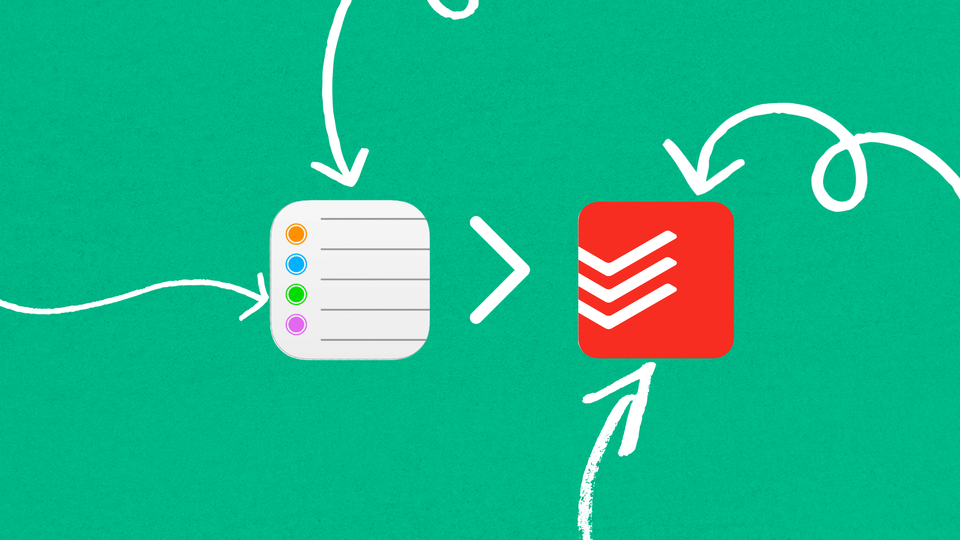Always On: Three Things I Do to Feel in Control

The past few weeks have been hectic at work. Lots of calls, meetings, travel and very little time to do the work that has resulted from my calls, meetings, and travel.
I’ll admit, I don’t consider myself an expert of productivity and organization but after reading some books on productivity and implementing some of the things I’ve learned, I thought I could to share what I’m doing to feel in control (ha), Maybe you’ll find something that fits within your routine.
Let’s start with a simple one.
The two-minute rule
If this sounds familiar, it’s because I also mentioned it in my GTD post. It’s a simple mindset that, on some days, makes me feel like the champ of productivity.
If a task takes less than 2 minutes to complete, do it now. Don’t think about, just do it. If you maintain some sort of checklist, you’ll be surprised at how many two-minute tasks you can have. Getting those out of the way quickly can help jumpstart your productive day.
Parkinson’s Law
Relax, it’s a simple concept, not rocket science. I ran into this concept a post from Ali Abdaal’s blog (his YouTube channel is pretty cool too).
Parkinson’s Law states that work expands to fill the time allocated to it.

Put simply, if you have a task that’s due in two weeks and you don’t dedicate any time to that task, it’s going to take you those two weeks to complete it. Being human, that probably means we’ll be rushing to finish that task the night before.
I’ve learned this the hard way. I’m trying to shift my mindset and impose deadlines on myself to get things done. Have to update a budget by Friday that should take an hour to complete? I’m booking an hour on my calendar early in the week to get it done and come up with any questions to discuss before Friday.
I’m by no means perfect at this, but what I’ve realized is that I find myself more focused on a task and less stressed knowing that I have dedicated time to get it done. To do this successfully though, you have to plan properly and more importantly, think. That leads me to my next point.
Dedicate time to outcome thinking
This nugget is also brought to you by Getting Things Done.
Always On
In today’s busy culture, we’re always doing doing doing. I work a lot with systems and software, so if I have to make any configuration changes, I tend to just jump right into it. The same can be said of many tasks (queue email notification you think you must respond to immediately). We are all connected, 24/7 whether we want to or not. As a result, we tend to feel pressed for time so rather than spending time thinking about the outcomes of our actions, we spend most of our already limited time doing.
When should you think?
That’s entirely up to you. It could be Sunday before the work week starts, it could be first thing Monday morning, or it could be Friday afternoon when everyone leaves the office for the weekend. My thinking time tends to be in the morning, especially on days where I have tons of meetings and calls and limited time to do work. (As a side note, I’ve been practicing waking up at 5:30 am to do just this. It’s hard as heck to get up, but the uninterrupted silence makes it worth it.)
What should you think about?
I think about all the tasks I have to complete that day or that week, but then I take it a step further. What are the desired outcomes of those actions? Are we delivering something to a client? Do we need to prepare something for an internal discussion? Do I need to complete mandatory training?
Once you start asking yourself those questions, you’re naturally going to come up with more.
What information did the client ask for and are we delivering that? Is this the best way to present it? Does it need to be reviewed? By who? Are they in the office this week? Oh, our manager is out Thursday and Friday so we need to get this done before then so she can review. That training is due next Friday, but how long does it take? 2 hours? When can I fit that in this week? Is it something I have to do on the weekend?
The questions go on and on but the point is made. Dedicating time to thinking about your upcoming actions helps you understand what’s really required to check a task off your list. All of a sudden your tasks become mini projects with specific tasks: make updates based on discussion, ensure clients requirements are met with the content we have included, schedule time with manager to review, make any necessary updates, schedule time with your partner to review, make any necessary updates, send to the client.
What’s the alternative?
Deliverable is due on Friday and Wednesday you’re scrambling to make updates but wait, your manager is out Thursday and Friday and you forgot so you’re rushing to put something together to review by the end of the day Wednesday and they have updates you have to make but they’re not in the office to review so you have to schedule time with the partner on Friday… Get the idea?
Conclusion
Doing these things isn’t easy. I had to read a book to learn about this stuff (I hadn’t read a book in years!).
I’ve had experiences where I’ve successfully done all three things I discussed and felt in complete control of the chaos. I’ve also had instances where I failed every single thing. But, that’s how I learn! I eventually find myself thinking that if I had done all those small tasks earlier in the day, I would not feel like the day was an unproductive one. Or had I started on this task earlier, I would have known to ask certain questions beforehand.
It’s a never-ending cycle of trial, error, review, adjust, repeat. I challenge you to pick one task, try it and see how it works for you. I guarantee that even if that task doesn’t work for you or fit your routine, you’ll learn something about how you work and that itself has value.
Disclaimer: I am posting this during my last day of vacation when all seems okay in the world. We’ll see how well I can keep this up when I return to work tomorrow 🙂



